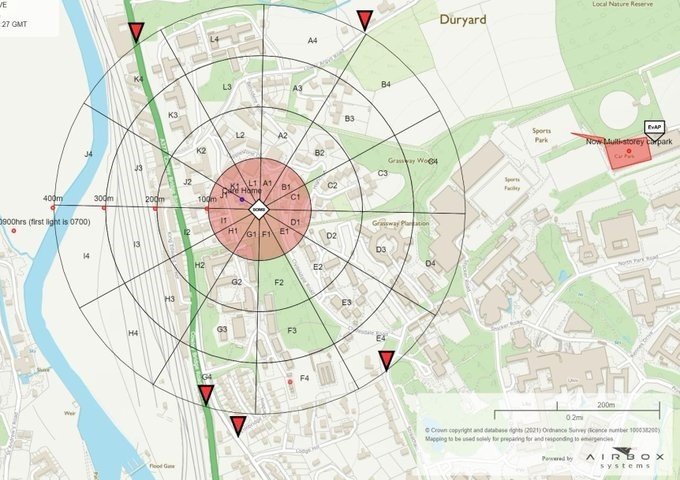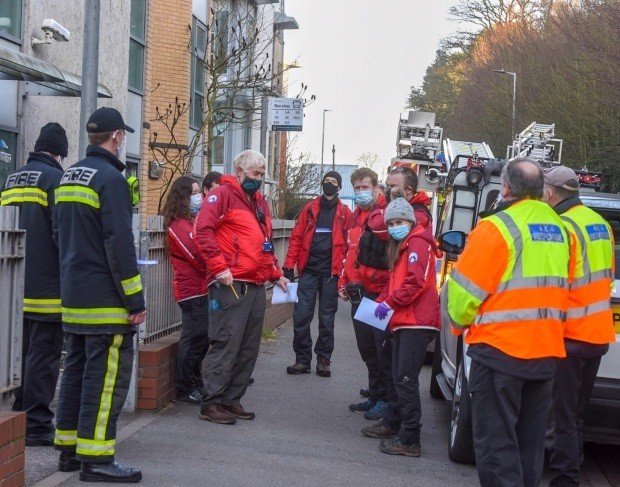THOUSANDS of homes have been evacuated and 12 uni halls closed after an eight-foot World War II ‘bomb’ was discovered near a city centre.
Cops and bomb disposal teams have declared a major incident in Exeter after the suspected ordnance was found at a building site yesterday morning.
Royal Navy ordnance disposal squads spent the night working at the site – but police have this morning announced 2,600 homes will need to be emptied.
University students and residents of a nearby care home are among those who have been asked to leave their properties.
An 100-metre cordon was initially put in place around the device.
However, worried officers have now extended it to 400 metres over concerns for the safety of the public.
A spokesperson from Devon and Cornwall Police said the device, which measures a whopping eight foot by 27 inches, was found on private land in Glenthorne Road, just outside the city’s university.
Navy personnel have built a blast wall around the ordnance so it can be safely detonated.
“An initial 100-metre cordon was erected,” police said.
“The evacuation commenced yesterday evening and continued this morning at the request of the Royal Navy bomb disposal team, who worked through the night to establish a walled mitigation structure.
“The examination and detonation of the device has been passed to the Army.”
Specially-trained Army units began examining the ordnance at 10am.
It’s expected their work could take several hours, but police say they hope people will be able to return home by the end of the day.
Cops said: “Residents should be reassured that military, police and partners are working to maintain public safety.
“Exemptions in Covid-19 social distancing rules exist for matters of public safety such as this.”
Yesterday, Inspector Sean Roper admitted resolving the situation would “take some time” because of the “considerable size” of the device.
“That will take us until tomorrow, without a doubt,” he added.

Train services through busy Exeter St Davids have been halted and replaced with buses until at least the end of the day, while several major roads have been closed.
The University of Exeter said all affected students have been given “personal care items and details of food allowances”.
Exeter City Council said no evacuation centres have yet been set up.
Instead, council chiefs say people told to leave their homes have been encouraged to stay with relatives.
In April and May 1942, the German Luftwaffe carried out a blitz on Exeter.
The city was targeted in the attacks – part of the so-called Baedeker raids – because of its cultural and historical value.
In total, the nineteen air attacks on Exeter caused the death of 265 people, while 687 were injured, 111 seriously.
A large part of the city centre was devastated, and it was some 20 years before repairs were fully completed.
SUNIT




